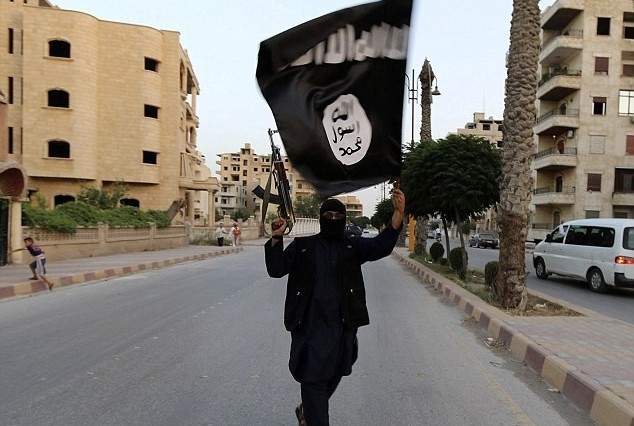by Austin Bodetti
Terrorism is no laughing matter. But the notorious Somali terrorist group al-Shabaab managed to become the subject of derision in the news media when it declared last year that it was banning plastic bags. Al-Shabaab, al-Qaeda’s affiliate in Somalia, claimed that plastic bags presented “a serious threat to the well-being of humans and animals alike.” Websites from The Daily Caller to The Small Wars Journal tweeted their mockery about the terrorist group’s peculiar edict while a photojournalist for the magazine National Geographic had to clarify his own tweet about the phenomenon as “not satire.”
Al-Shabaab remains far from the first associate of al-Qaeda to try tackling environmental issues. Osama bin Laden spent several of his last days fretting over climate change, and the reclusive leader of the Taliban encouraged Afghans to plant more trees in a bizarre “special message” in 2017.
Despite these commonalities, the Somali terrorist group has distinguished itself from its foreign allies with a history of outlandish boycotts, outlawing staples of modernity from bras and ringtones to the Internet, music, and television. The reach of these frequent bans remains a matter of debate, given that several East African militaries—bolstered by American airstrikes—have expelled the militants from much of Somalia. In response, al-Shabaab has retaliated against the East African countries backing the central government in Somalia. The militants attacked a hotel in Nairobi just this January.
“Al-Shabaab is no longer in control of major cities in Somalia,” said Hassan, a researcher at the Somali Institute for Peace and Human Rights who asked LobeLog to withhold his last name. “It has been pushed out of major towns by the Somali government with support from the African Union.”
Al-Shabaab’s defeats on the battlefield may explain why the Somali terrorist group felt the need to implement a ban on plastic bags to begin with. As the militants have lost territory, the income that they earned from controlling cities and ports has dwindled. Al-Shabaab has had to find other ways to fill its war chest, such as enforcing a tax on Somali businesses and even livestock.
Though websites such as Quartz framed the militants’ boycott of plastic bags as the Somali terrorist group’s ill-conceived attempt at public relations, the move likely had more to do with economics: plastic bags were killing the animals that help al-Shabaab bankroll its operations.
“The only way that al-Shabaab can finance its activities in Somalia is via the collection of taxes from businessmen and herders,” Hassan told LobeLog. “The majority of the Somali people are livestock herders…Right behind droughts, plastic bags kill the second-greatest number of livestock in the country. By losing animals to plastic bags, al-Shabaab felt that its only source of income was being threatened and decided to ban them. The ban was also meant to portray the group as one that cared for the economic and social well-being of the Somali people.”
The Somali terrorist group’s sudden embrace of environmentalism seems far less aberrant in this context: al-Shabaab was acting out of self-interest, not concern for the natural environment.
“Herders are expected to pay the tax in the form of animals,” Mohamed Mukhtar Ibrahim, executive director of the Somali Institute of Public Administration and Management and a former Somali Petroleum and Mineral Resources Minister, told LobeLog. “It’s not in al-Shabaab’s interest to lose animals after collecting them or to have less livestock to tax in the first place.”
The militants have shown their willingness to disregard and even exacerbate environmental issues in the past if exploiting the natural environment earns them a profit. This behavior is similar to other affiliates of al-Qaeda involved in trafficking the horns of rhinos and the pelts of tigers throughout Southeast Asia.
Much of al-Shabaab’s revenue comes from burning and cutting trees, another practice that it once prohibited. The Somali terrorist group uses some of the trees to produce charcoal that it then exports to black markets in the Persian Gulf. The United Nations had to respond by banning charcoal from Somalia in a bid to curb terrorism financing there. The militants also participate in the ivory trade, from which the Somali terrorist group earned as much as $200,000 a month in 2012.
According to anecdotal evidence, al-Shabaab will even break its own rules if necessary. A journalist wrote on Twitter last year that the militants were using plastic bags filled with explosives to intimidate residents of Mogadishu, where the Somali terrorist group remains active.
“Al-Shabaab doesn’t even care about the environment,” argued Hassan, noting al-Shabaab’s role in environmental issues. “Its activities have contributed to deforestation and other problems.”
Even if al-Shabaab’s ban on plastic bags lacks sincerity, the environmental movement has gained traction elsewhere in East Africa. Kenya, which has fought al-Shabaab in Somalia and on its own soil for a decade, announced its own prohibition on plastic bags a full year before the Somali terrorist group’s diktat. Uganda, which, like Kenya, has deployed soldiers to Somalia, followed suit last year. Meanwhile, Rwanda, one of several countries that has trained Somali soldiers, banned plastic bags in 2008.
Within Somalia, the region of Somaliland outdid Kenya, Rwanda, and Uganda by instituting a ban in 2005. Some Somalis have even turned recycling plastic into a business. Public figures such as the famous Somali-American environmentalist Fatima Jibrell have further institutionalized the environmental movement in the country, and the rise of the Somali Green Party indicates just how far environmentalism has spread there. For their part, the UN Development and Environmental Programs are likewise working to address environmental issues in Somalia.
Somali environmentalists appear to have little need for the assistance of a radical terrorist group better known for beheadings, kidnappings, and suicide attacks than for its environmental policy.
“Al-Shabaab is using the ban as propaganda to pretend that it cares about the environment,” said Abdifatah Ali Hassan, chief executive of the Somali Institute for Development and Strategic Studies. “In fact, the group doesn’t care about either the environment or ordinary people.”
Austin Bodetti studies the intersection of Islam, culture, and politics in Africa and Asia. He has conducted fieldwork in Bosnia, Indonesia, Iraq, Myanmar, Nicaragua, Oman, South Sudan, Thailand, and Uganda, and his research has appeared in The Daily Beast, USA Today, Vox, and Wired.





